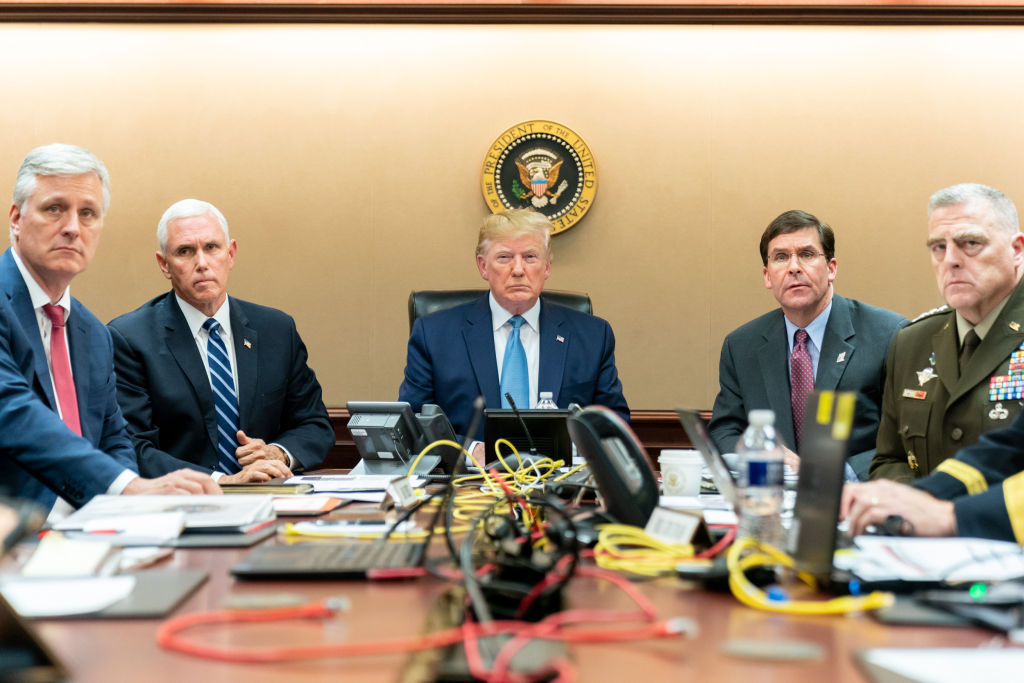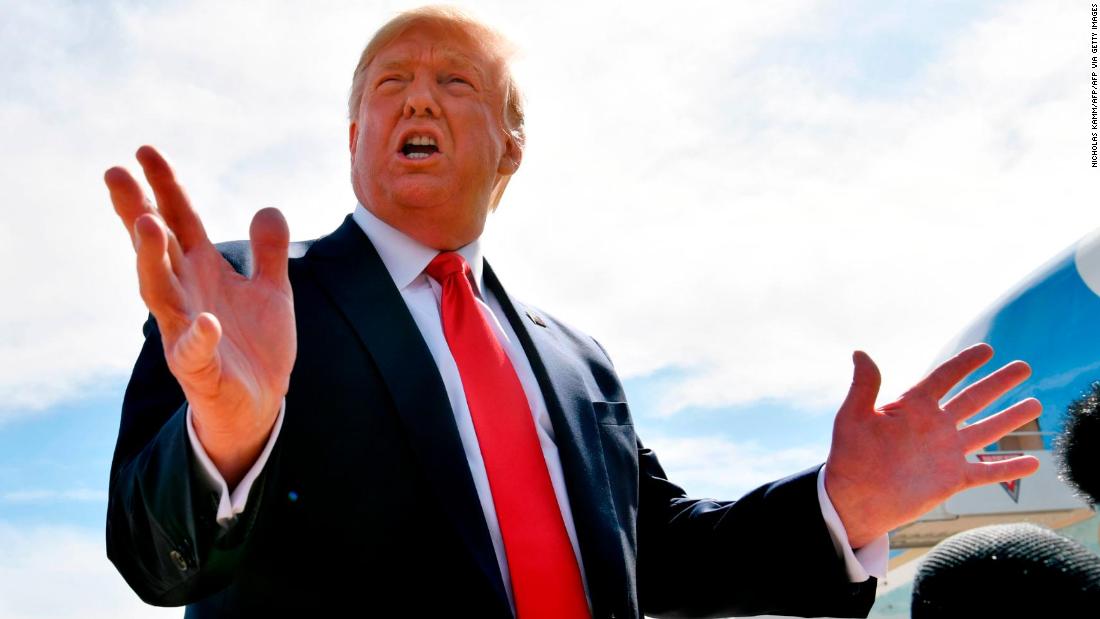Sen. Ron Johnson met in July with a former Ukrainian diplomat who has circulated unproven claims that Ukrainian officials assisted Hillary Clinton’s 2016 presidential campaign, a previously unreported contact that underscores the GOP senator’s involvement in the unfolding narrative that triggered the impeachment inquiry of President Trump.
In an interview this past week, Andrii Telizhenko said he met with Johnson (Wis.) for at least 30 minutes on Capitol Hill and with Senate staff for five additional hours. He said discussions focused in part on “the DNC issue” — a reference to his unsubstantiated claim that the Democratic National Committee worked with the Ukrainian government in 2016 to gather incriminating information about then-Trump campaign chairman Paul Manafort. Telizhenko said he could not recall the date of the meeting, but a review of his Facebook page revealed a photo of him and Johnson posted on July 11.
“I was in Washington, and Sen. Johnson found out I was in D.C., and staff called me and wanted to do a meeting with me. So I reached out back and said, ‘Sure, I’ll come down the Hill and talk to you,’ ” Telizhenko told The Washington Post on Wednesday.
An individual close to Johnson confirmed that staff for one of his committees met with Telizhenko as part of an ongoing investigation into the FBI and its probes of the 2016 election, but declined to say whether the senator was involved.
The meeting points to Johnson’s emerging role as the member of Congress most heavily involved in the Ukraine saga that has engulfed the White House and has threatened Trump with impeachment.
The senator’s committee assignments place him at the center of U.S.-Ukraine policymaking: Johnson is chairman of the Foreign Relations Subcommittee on Europe and Regional Security Cooperation and vice chair of the Senate Ukraine Caucus, a bipartisan group formed in 2015 to boost ties between Washington and Kyiv. He is also chairman of the Homeland Security Committee, a panel with investigative powers.
More significantly, testimony from two blockbuster witnesses in the impeachment probe place Johnson at episodes that will be critical in assessing whether Trump was withholding nearly $400 million in congressionally appropriated military aid to Ukraine in exchange for political favors. Ukrainian President Volodymyr Zelensky faced pressure to announce investigations into the Bidens and the debunked conspiracy theory that a hacked DNC server was taken to Ukraine in 2016 to hide evidence that it was that country, not Russia, that interfered in the presidential election.
Johnson’s knowledge of key events could make him a person of interest to House impeachment investigators, as well as complicate his role as a juror in a trial by the Senate, if one occurs. There are no rules forcing senators with possible conflicts of interest to recuse themselves during impeachment proceedings, and Johnson, through a spokesman, declined to comment on what he would do.
Experts said that even the appearance of a conflict of interest would be problematic for a senator during an impeachment trial, but declined to comment specifically on Johnson’s case.
“This is the most important and sacred obligation of the Senate — to make the decision about whether or not a sitting president is guilty of high crimes and misdemeanors. It would stain the process even if the jurors had a potential conflict. This shouldn’t be a legalistic question, but one of the basic integrity of senators,” said Corey Brettschneider, a professor of political science and expert in constitutional law at Brown University.
Johnson’s position is complicated by his dual roles — as an ally and advocate for both Trump and Ukraine.
He has been an outspoken supporter of U.S. military aid to Ukraine since at least 2015 and has urged several times that Ukraine root out corruption in its prosecutor general’s office.
Trump has accused former vice president Joe Biden — a potential 2020 rival — of trying to get a Ukrainian prosecutor fired to stop an investigation of Burisma, a Ukrainian energy company in which his son, Hunter Biden, had served on the board.
In fact, the Obama administration, other Western officials and a bipartisan group of senators, including Johnson, had pressed Ukraine to address corruption, notably in
a letter in February 2016 to then-Ukrainian President Petro Poroshenko. Poroshenko has also rebutted Trump’s claim about Biden, saying this month that the former vice president never asked him to open or close cases.
Johnson has had to strike a delicate balance in recent months between these positions and his support for Trump.
A conservative Republican elected in 2010, the former manufacturing executive co-sponsored a Senate resolution this week condemning the House impeachment inquiry. He has forcefully defended the president in the media, and last month, wrote a letter that mentioned Telizhenko and his claims while asking Attorney General William P. Barr to investigate any links between Clinton’s 2016 campaign and Ukraine.
“Such allegations of corruption deserve due scrutiny, and the American people have a right to know when foreign forces attempt to undermine our democratic processes,” wrote Johnson and Sen. Charles E. Grassley (R-Iowa).
Interviews this month highlighted Johnson’s unusual position.
On Oct. 4, Johnson told the Wall Street Journal that he “winced” when told by a key diplomat in August that Trump would release the hold on military aid for Ukraine if Zelensky launched an investigation into “what happened in 2016.”
“My reaction was: Oh, God. I don’t want to see those two things combined,” he told the paper. Johnson said Trump adamantly denied a quid pro quo the next day, telling Johnson: “No way. I would never do that. Who told you that?”
On Oct. 6, Johnson gave a combative interview during NBC’s “Meet the Press.” As host Chuck Todd pressed him on why he had “winced” at Trump allegedly conditioning military aid on investigations, Johnson emphasized that the president “vehemently, angrily denied” that such an arrangement ever existed.
Johnson also expressed sympathy for Trump and attacked the media, saying he had “never seen a president’s administration be sabotaged from the day after election.”
Telizhenko, with whom Johnson met in July, is a political consultant and former Ukrainian diplomat who has fueled the unsubstantiated theory embraced by Trump that Ukraine assisted Clinton in the 2016 election with help from the Democratic National Committee. The DNC has denied those claims.
The 29-year-old Ukrainian national had a lengthy meeting in May with Trump’s personal attorney Rudolph W. Giuliani, who later said the two discussed U.S.-Ukraine relations.
Telizhenko said he discussed two unsubstantiated claims with Giuliani that have since become central to Trump’s attitudes toward Ukraine — that the Ukrainian embassy in Washington where Telizhenko once worked aided Clinton’s campaign, and that Biden pressured the Ukrainian government to stop an investigation of the energy company.
Telizhenko told The Post that the “DNC issue” was also “one of the top topics” during his meetings with Johnson and Senate staffers, referring to his claim that a Ukrainian American working as a DNC contractor coordinated with the embassy to find compromising material on Trump and Manafort.
Embassy staffers, the former contractor and the Biden family have vehemently denied these claims.
It is unclear whether impeachment investigators are looking at Johnson as a potential witness in the inquiry. House Intelligence Committee Chairman Adam B. Schiff (D-Calif.) declined to comment when asked about the possibility on Friday.
Yet the senator has been involved in key moments of the story.
Johnson attended Zelensky’s inauguration in May with U.S. ambassador to the European Union Gordon Sondland, Energy Secretary Rick Perry, then-special envoy to Ukraine Kurt Volker and National Security Council official Alexander Vindman. All but Perry and Johnson have testified or are scheduled to testify in the House probe.
The group returned from Ukraine and debriefed Trump and key aides at the White House on May 23. Sondland testified this month that Trump urged them to talk to Giuliani about his concerns about corruption in Ukraine, guidance that opened the informal diplomatic channel used to facilitate the alleged quid pro quo.
Johnson denied Sondland’s version of events this week, saying he had “no recollection of the president mentioning Rudy Giuliani” at the May 23 meeting.
“Ambassador Sondland said that was when that all began. I have no recollection of that at all,” Johnson told The Post in a brief interview on Capitol Hill.
In early September, Johnson met in Kyiv with Zelensky, who asked about the freeze on military aid, but according to Johnson, did not “mention or indicate that he was feeling pressure.”
Trump had barred Johnson from telling Zelensky that aid was on its way, Johnson told reporters in Sheboygan, Wis., this month.
William B. Taylor Jr., the United States’ top diplomat in Ukraine, testified this week that Johnson and Sen. Chris Murphy (D-Conn.) told Zelensky in that meeting that bipartisan support in Washington was a strategic asset and that he should not jeopardize it “by getting drawn into U.S. domestic politics.”
On Oct. 4, Johnson told reporters that he was not in favor of the president using his office to pressure a foreign government to launch investigations that could benefit him politically — but added that he was “not sure that’s what’s happening” with Trump.
The previous day, he had said there was nothing wrong with Trump urging China to investigate his potential 2020 rival, Joe Biden.
“I want to find out what happened during 2016,” Johnson said in Middleton, Wis., according to the Milwaukee Journal Sentinel. “If there’s potential criminal activity, the president of the United States is our chief law enforcement officer. We have proper agreements with countries to investigate potential crimes so I don’t think there’s anything improper about doing that.”


 Tai kameran kello väärässä...
Tai kameran kello väärässä...


